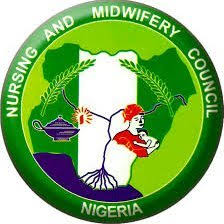In every functioning health system, nurses are rightly described as the brain and heart of the hospital — the silent forces keeping patients alive, comforting families, and ensuring that complex medical interventions run smoothly. But when these lifelines are pushed to the brink and decide to down tools, the consequences are nothing short of catastrophic.
This is the grim reality confronting Nigeria’s health sector as nurses and midwives, frustrated by poor working conditions, unpaid entitlements, lack of essential equipment, and government neglect, go on a strike action following the expiration of the 15-day ultimatum issued by the National Association of Nigeria Nurses and Midwives (NANNM).
For decades, Nigeria’s nurses and midwives have carried the burden of the healthcare system with little recognition, poor remuneration, and minimal support. Despite being the first responders in emergencies and the backbone of primary healthcare delivery, their welfare and professional development have been consistently overlooked.
Every strike action by nurses is a desperate cry for attention — one that can no longer be ignored. When the brain and heart of a hospital shut down, the entire health system collapses. The Nigerian government must understand that improving the welfare of nurses is not a luxury; it is a public health necessity.
Timely payment of salaries, improved working conditions, provision of modern equipment, opportunities for continuous professional development, and inclusion of nurses in key policy decisions are non-negotiable. Anything less is a disservice not just to the nurses but to the millions of Nigerians whose lives depend on them.
The longer these disputes drag on, the greater the damage to public trust in the healthcare system. The government must move beyond empty promises and take decisive steps to address the legitimate demands of nurses. A strong, motivated nursing workforce is the foundation of a resilient health system — and without them, the nation’s health is in jeopardy.
When nurses strike, it is not out of selfishness. It is because the very soul of healthcare delivery is under threat. The time for action is now.
The demands by the National Association of Nigerian Nurses and Midwives (NANNM) are not mere requests—they are urgent calls to restore dignity, equity, and functionality to a system that has long neglected its backbone. From gazetting the long-overdue Nurses Scheme of Service (2016) to enforcing the NIC judgment of 2012, nurses are asking for what is rightfully theirs.
They seek fair compensation through a reviewed professional allowance, adequate staffing, and well-equipped facilities to deliver quality care. They call for structural reforms: the creation of a dedicated Department of Nursing within the Federal Ministry of Health, meaningful involvement in national health policymaking, and fair representation on boards and institutions.
Centralized internship postings and the establishment of consultancy roles for nurses and midwives are essential steps toward professional recognition and career progression. These are not luxuries—they are necessities. The government must act now, not just to end the strike, but to heal the very soul of healthcare in Nigeria.




